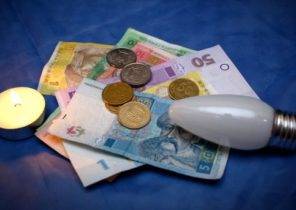Imagine a country, a major Western economic power, where the coronavirus has appeared with delay, and the state began to act proactively, without delay and without denying the facts. The government in this country prepared tests, and tracking contacts to quickly reach a plateau of morbidity. In the end the death rate there was significantly less than in all other industrialized countries of the West. Containing the spread of the virus, which implemented short-term and spot mode isolation, due to which unemployment has been contained at six percent. The international community brought her a barrage of well-deserved praise, and her boringly predictable leader had a jump in popularity — from 40 to 70 percent.
Such a mirror-opposite reflection of America under President trump was Germany under the leadership of Chancellor Angela Merkel. The explosion in its popularity has led to the political marginalization of the extreme right and the extreme left. German trade unions work closely with company executives to close enterprise, and to maintain a safe overall working conditions (notable exception there was the production of packaged meat). Merkel’s government coordinates its actions with all the lands (Federal States) of Germany to contain the pandemic. Together with other EU member States it has created a Fund to help countries most affected by the coronavirus.
Germany shows all of its strengths and benefits, and because of this it is a big economy will certainly flourish in the world after the pandemic.
Coronavirus has accelerated the trend of self-isolation of the national economies that began in the Wake of the global financial crisis in 2008. National governments increasingly take control of various aspects of economic life. They increase the amount of state debt to provide growth, introduced new barriers against foreign trade and immigration. Booming only a virtual part of the world economy, as people work, entertain and do shopping online.
Which countries will succeed in this changing economic atmosphere? Despite technological superiority, the United States and China have accumulated too much debt and their governments are being criticized for the wrong actions in a pandemic. Great expectations delivers Vietnam, turning to new export power and stop the virus on the approach. Russia is also promising economy, as President Vladimir Putin for several years working on the isolation of the country from external financial pressure, and such protective measures may be particularly valuable in the context of a breakdown of globalization.
But the main winner is likely to be Germany. Her reaction to the pandemic demonstrated the advantages possessed by this country: effective government, and low debt, for an economy whose excellent reputation protects German exports in the face of shrinking world trade and a huge potential for the creation of private IT companies in a world dominated by American and Chinese Internet giants.
If other countries are worried that the recent layoffs can become permanent, most German workers have kept their seats and salaries thanks to the rapid expansion years of the state system of part-time employment, under which companies receive payments for the preservation of jobs with part-time working during a time of crisis. Germany was able to expand this system, and much more in the field of social services thanks to his famous frugality. In those years, when Merkel called on other EU member States to implement austerity measures, they were laughing at her, calling “Swabian housewife” as he was called prudent Germans, who kept stale bread, and then made him dumplings. Now on it no one laughs.
As the pandemic came to Germany with a budget surplus, it was able to maintain its sent to the isolation economy through direct payments to families, tax cuts, loans to business and other types of aid, which amounted to 55 percent of GDP, or four times the amount of us aid in relation to GDP. She also for the first time and agreed to allocate funds for the economic stimulation of neighboring countries that have long complained that the German skuperdyaystve is to the detriment of the entire continent. Such a step Germany was a generous and practical. Now these countries are more likely to afford German exports than before.
However, Germany has not abandoned its commitment to maintain the budget balance. Since most of the spending comes from savings, Germany’s public debt will rise, but only to 82 percent of GDP. It is much lighter debt burden than the United States and other developed countries, which measures economic support spend far less.
Doubters argue that Germany fell into a dangerous dependence on industrial exports, especially to China, and it happened in the time of slowing global trade. Well aware of these weaknesses and vulnerabilities, Berlin insists on the modernization of its major exporters, including major automakers. Applying control measures and public condemnation, he calls for automakers to abandon the highly profitable internal combustion engine and to switch to the production of electric vehicles of the future. Stuttgart, where the businesses of the companies Porsche and Mercedes-Benz, has banned traffic in the city limits of old cars with diesel engines.
Germany let the late, but start to take active steps to making it a more competitive technological power. On research and development it spends as much as the USA (about three percent of GDP). It has a long-term plan to create an entrepreneurial ecosystem like Silicon valley, where venture capitalists will invest in promising startups. The German technology industry has its setbacks, such as the recent sudden collapse of the company financial technologies Wirecard, which caused a lot of questions about the vigilance of the financial regulator of Germany. But following the initial success of the Internet industry, when the Germans simply copied the American online trading and the delivery of food, it is rapidly gaining momentum.
German plan of economic assistance, includes $ 56 billion for start-up companies that will digitize a traditional industry using artificial intelligence and other new technologies. Recently, Germany has joined France announced a steep rise of digital technology, which aims to create a pan-European Internet cloud that can compete with American and Chinese stores.
In Germany the aging and conservative society, but it has repeatedly refuted the arguments of critics who believe that this country is changing too slowly. In the early 2000’s, when Germany scornfully called “the sick man of Europe”, it carried out a series of reforms in the labour market and regained its title as the most stable economy on the continent. The pandemic is accelerating the pace of digitization and de-globalization, and also increases the size of debt in different countries around the world. But Germany in this respect stands out because it is less subject to such problems, and its government is able to overcome them.







